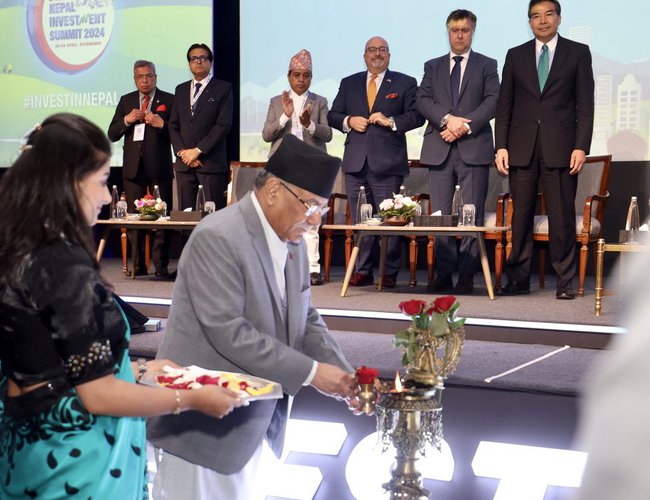
The third Nepal Investment Summit (NIS) 2024 concluded with the major parties urging foreign investors to boost their investments in Nepal. Despite political divisions within Nepal's major political parties, they have presented a united front in support of foreign investment.
Prime Minister Pushpa Kamal Dahal ‘Prachanda’ highlighted in his opening speech that Nepal is becoming a top investment destination, providing vast opportunities for global investors and encouraging them to seize this chance. Nepal warmly embraces foreign investment and stands at the crossroads of opportunities, inviting investors with its untapped potential.
The government's steadfast dedication to liberal economic policies establishes the groundwork for a dynamic and investor-friendly business environment. Prime Minister Prachanda emphasized that Nepal offers numerous investment prospects across various sectors, such as tourism, agriculture, manufacturing, ICT, readymade garments, high-value crop production, agro-processing, and infrastructure.
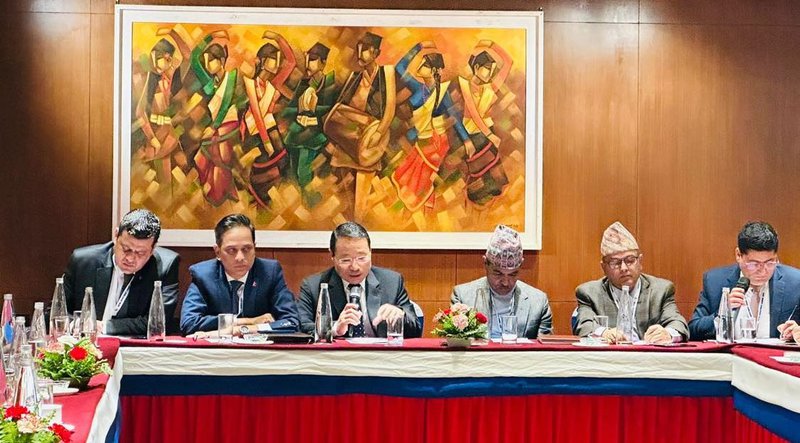
The inaugural session of the investment summit featured a speech by Sher Bahadur Deuba, the leader of the main opposition party Nepali Congress, while the closing session was addressed by CPN-UML chair Oli, the leader of the largest party in the ruling coalition.
During the inaugural session of the summit, Deuba, the President of the Nepali Congress, highlighted Nepal's immense potential for development. However, he also acknowledged the country's lack of sufficient capital and appropriate technology to achieve the desired level of development. In an effort to attract foreign investment, Deuba presented Nepal as an appealing destination for investment and urged foreigners to consider investing in the country.
At the closing ceremony of the summit, KP Sharma Oli, the chair of the ruling coalition partner CPN-UML, expressed his party's commitment to creating a favorable environment and providing legal facilitation for the prosperity of the country. Oli also emphasized his party's support for the efficient implementation of amended laws and the establishment of favorable conditions to encourage both domestic and foreign investments in Nepal.
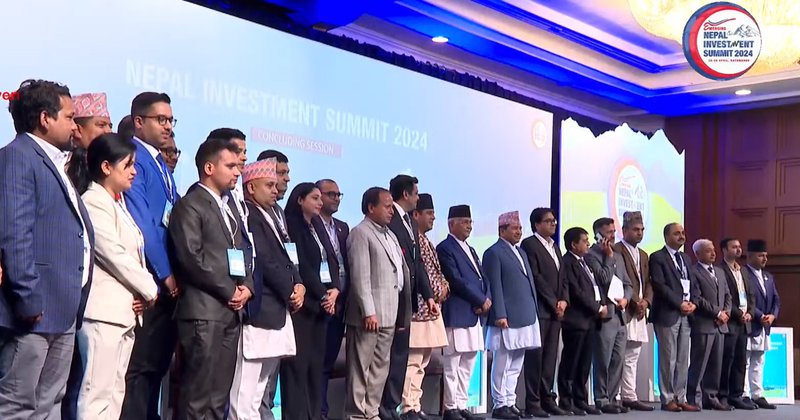
Despite the government's earlier pledge to hold an investment summit every two years, the third investment conference took place after a gap of five years. Nepal possesses significant potential for hydropower generation, but only 3,200 MW has been harnessed thus far. Additionally, there are approximately 5,568 MW of large-scale power projects currently under construction or in the pipeline for execution through the Public-Private Partnership (PPP) modality.
Finance Minister Barsha Man Pun, who engaged in discussions with representatives from the World Bank, Asian Development Bank, International Monetary Fund, and United Nations Development Program during the event, as well as ambassadors from various countries in attendance at the summit, hailed the third Nepal Investment Summit as a great success. He emphasized that such interactions underscore Nepal's potential as a key global investment destination. Minister Pun pledged to strengthen collaboration with development partners in the future.
Minister Pun expressed the government's dedication to working closely with the private sector through direct private investments and various public-private partnership models. He highlighted that the government has initiated policy reforms aimed at enhancing the business environment and instilling confidence in investors. These reforms involve streamlining regulatory processes, reducing business costs and time, and ensuring transparency and accountability in public sector governance. Minister Pun stressed that reform is an ongoing process and will continue in the future.
Sushil Bhatta, Chief Executive Officer of the Investment Board Nepal (IBN), commended the high-level delegation from different countries, development partners, and multilateral donors for their interest in investing in Nepal's promising sectors.
The third Nepal Investment Summit (NIS) 2024 took place on 28-29 April 2024 in Kathmandu. Hosted by the Ministry of Finance, in collaboration with the Investment Board Nepal (IBN), the primary focus of this Summit revolved around private sector engagement and foreign direct investment (FDI) in Nepal. The main goal of the Summit was to showcase Nepal as a burgeoning global investment hub and attract the interest of potential international investors towards the opportunities available in Nepal. This brief delves into Nepal's development goals within the framework of the Nepal Investment Summit, FDI in Nepal, and India's involvement as a development partner.
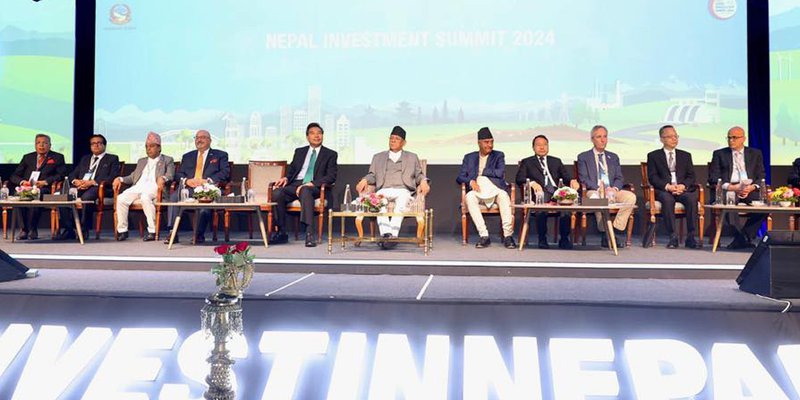
The Nepal Government had been working closely with bilateral and multilateral development partners, as well as Development Finance Institutions (DFIs), in preparation for the Summit. To promote the NIS 2024, the government had organized various bilateral visits and meetings with development partners since January 2024. Furthermore, promotional activities were conducted by the IBN and government as part of Nepal's development diplomacy efforts.
Summit and Participation
The Summit welcomed government officials, potential investors, notable business figures, professionals, and high-level delegations from around the globe. As per the organizers, more than 2,500 participants, including approximately 800 foreign attendees from 55 different countries, were present at the Summit. The IBN reported that the majority of participants hailed from India and China.
Nepal presented a total of 152 potential projects at the Summit, with the majority of them being from the hydropower sector. The Summit concluded by signing over 12 MoUs with Nepal's Development partners and investors.
Furthermore, the government has introduced an online system for foreign companies to register and obtain approval for Foreign Direct Investment (FDI) in Nepal. The NIS 2024 successfully secured approval for investments worth more than NPR 9.13 billion for four projects in Nepal.
Moreover, the government has extended an invitation for Expression of Interest (EOI) on April 28, 2024, inviting investors to participate in a public-private partnership (PPP) tender process for specific projects. These projects encompass various transportation and connectivity initiatives, as well as hydropower projects.
Regarding previous Investment Summits, the Nepal government has previously organized two Summits, one in 2017 and another in 2019. During the NIS 2017, 16 companies from around the world signed Letters of Intent (LoI) amounting to a total value of US$ 13.7 billion. However, according to FDI data from Nepal Rastra Bank (NRB), these commitments were not entirely fulfilled.
The NIS 2019 was organized as a result of significant policy reforms in the FDI regulatory framework. At the 2nd Summit, 15 project investment agreements worth US$ 12 billion were signed, covering various sectors such as international airport development, road construction, hydroelectricity, and agriculture sector development. However, despite these achievements, the FDI inflows did not meet the commitments made during the Summit.
Despite the best efforts of two consecutive governments in organizing the NISs, the desired objective of attracting foreign investment was not fully realized. Scholars and academia have attributed this to the decline in global FDI inflows caused by factors such as the Russia-Ukraine war, high food and energy prices, concerns about a recession, and debt pressures. Additionally, the ongoing political uncertainty in Nepal, characterized by frequent changes in the government, has negatively affected investor sentiment.

Navita Shrikanta, a governance expert from India who was invited to speak at the Summit, believes that the event was successful in sending a message to foreign investors. "One of the most positive aspects of the summit was the broader consensus among Nepal's major political forces. This is good news," Shrikanta stated.
The commitments expressed by the Indian private sector and the government of India hold great significance, especially considering the economic recession and decline in industrial and agricultural production that Nepal has been experiencing. The Nepalese economy has been adversely affected by the COVID-19 pandemic, leading to various challenges in recent years. In light of this deepening economic crisis and the need for growth and development, the NIS 2024 was formulated.
Given Nepal's status as a land-locked country with limited financial resources and technical expertise, foreign investment is crucial to enhance key sectors and achieve its developmental goals. Since the 1950s, Nepal has relied on foreign aid to meet its developmental requirements after opening up to the world. With the initiation of economic liberalization in the mid-1980s, the country's focus gradually shifted towards the services sector, leaving the agriculture and industrial sectors underdeveloped, untapped, and underutilized due to insufficient investment.
It was expected that Nepal, after its liberalization, would be able to attract foreign direct investment (FDI) in its key sectors, which would contribute to its developmental goals and overall economic growth. However, Nepal has struggled to attract sufficient attention from global investors.
Over the past 37 years, FDI inflows in Nepal have fluctuated between 0.1% and 0.5% of its GDP. The data reached its highest point at 0.7% in 2017, but also hit a record low of -0.1% in 2000. There is a lack of consistent data on the total commitment and actual realization of FDI in Nepal. The most recent FDI survey report published by the NRB highlights a significant gap between FDI commitments and actual net inflows. According to NRB data, the total actual net FDI inflow between fiscal years 1995-96 and 2021-22 stood at approximately 36.2% of the total approval.
The main reasons for Nepal's struggle to attract substantial foreign aid for development are primarily the ongoing instability of political regimes and policy implementation. At the political level, there has been a comprehensive political transition following the general elections in November 2017, which has contributed to greater political stability. On the policy front, Nepal has introduced and revised several legislations on foreign investment and related policies since its liberalization.
In order to attract prospective foreign investments, Nepal needs potential markets that are easily accessible and well-connected. In this regard, India offers duty-free quota-free access to almost all Nepalese goods in the Indian market and also provides access to its two seaports, Haldia (Kolkata) and Vishakhapatnam, for Nepalese overseas trade. Additionally, Nepal's proposed hydropower export to Bangladesh requires a transmission line through Indian Territory. There is a trilateral power exchange agreement in progress, which is expected to be signed by the Bangladesh Power Development Board.
The trilateral agreement signing will enhance cross-border energy trade in South Asia and BBIN subregions, marking a unique and pioneering development. India's collaboration with Nepal in terms of development is a crucial element in Nepal's pursuit of FDI and overall foreign trade and commerce.
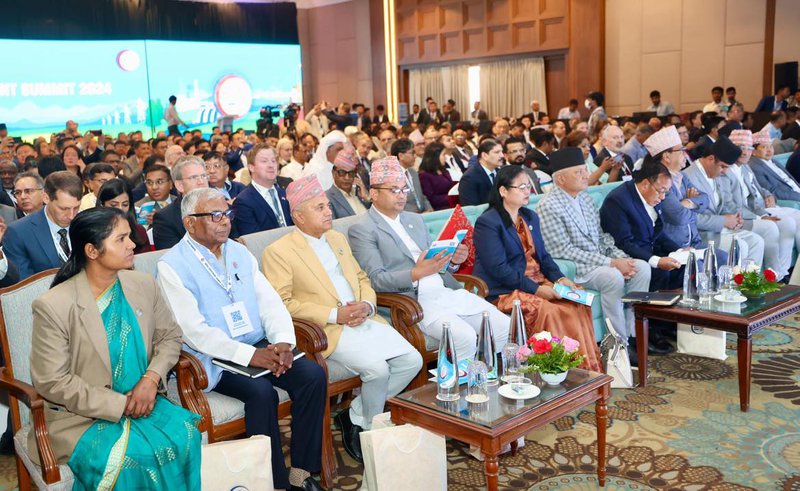
During NIS 2024, a video message from India's Minister of Commerce and Industry, Piyush Goyal, emphasized Nepal's significance as a key partner in India's 'Neighborhood First' policy. Goyal affirmed, "We are committed to investing in Nepal and strengthening our trade and business ties." He further encouraged Indian investors worldwide to consider investing in Nepal and be part of its growing economy.
However, concerns have been raised regarding the FDI-related policy reforms approved by the Nepal Government through an ordinance on the same day as the commencement of NIS 2024. The concerns revolve around the ordinance's passage and its subsequent adoption as an Act by the Parliament amidst ongoing political uncertainties.
To alleviate such worries, Barshaman Pun, the Finance Minister of Nepal, has reassured that the NIS-2024 will remain unaffected despite any political changes. He emphasized that while governments and ruling coalitions may change, it will have no impact on the country's investment policy.
Another concern raised pertains to the frequent shifting of development projects from one foreign firm to another by the Nepal Government, resulting in unnecessary delays in project implementation in the past.
Additional challenges include difficulties in acquiring land and tax-related issues, such as the absence of tax rebates on reinvested profits. Furthermore, Nepal has witnessed an increase in copyright, trademark, and patent infringements due to inadequate enforcement of laws in the country.
Following the conclusion of the Summit, there have been comments from certain quarters expressing disappointment with the commitments made, particularly in the energy sector. It is believed that the Summit was unable to effectively address the broader challenges faced by the Nepalese political and economic landscape.
Nevertheless, it remains uncertain whether the efforts undertaken by Nepal in organizing the NIS 2024 will yield positive results in the future. Nepal has employed development diplomacy to capture the attention of its development partners and potential investors, urging them to invest in the country. This endeavor holds great significance considering the challenges faced by the Nepalese economy in recent times.
Additionally, it is crucial to acknowledge that Nepal's transition from a Least Developed Country (LDC) to a developing country is scheduled for November 2026, which will result in a substantial loss of concessions and policy flexibility in key sectors. Against this backdrop, the NIS 2024 has concluded with the aspiration of attracting greater foreign direct investment (FDI) and fostering growth in Nepal. However, the ultimate success of this initiative hinges upon the actual investment secured in the coming days.
The government hosted the Nepal Investment Summit-2024 on April 28 and 29, citing a lack of sufficient domestic capital for the country's development and prosperity. To entice both domestic and foreign investors, the government has introduced amendments to nine laws through an ordinance. These amendments were implemented on the eve of the Nepal Investment Summit-2024 and address longstanding grievances from the private sector regarding existing laws that impede the creation of an investment-friendly environment in the country.
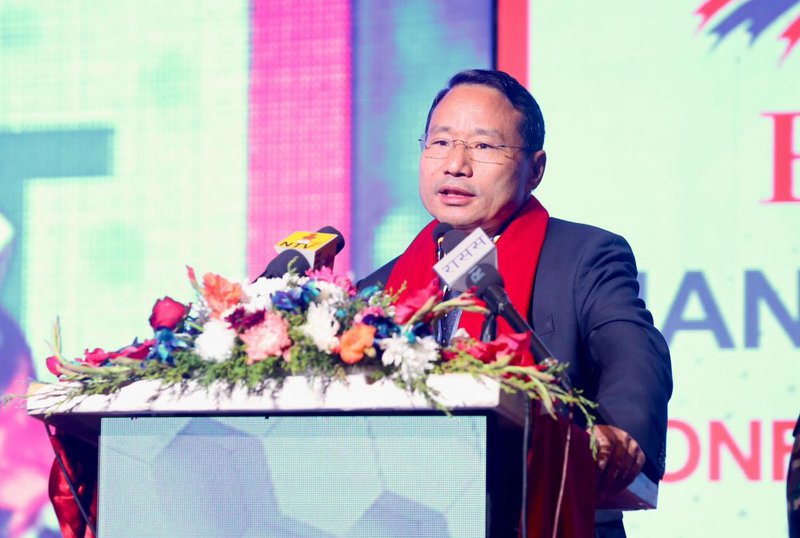
Finance Minister Barshaman Pun has stated that these amendments are aimed at fostering trust among investors. He mentioned that the laws have been modified based on recommendations from the private sector, using an ordinance to facilitate investment.
Suryaraj Acharya, an expert in infrastructure and development, believes that regardless of what political leaders express during the investment summit, it should be analyzed from two perspectives. According to Acharya, it is crucial to reassure investors that political changes in the country will not disrupt the government's policy continuity. However, the true measure of success or failure for this summit will be determined by the investments secured in the future.
During the event, representatives from Kathmandu-based missions, development partners, and private sectors have emphasized the importance of collaboration to explore untapped sectors and unlock Nepal's potential. They have expressed their commitment to prioritize collaboration in order to achieve this.

During the 3rd Nepal Investment Summit 2024, the Department of Industry has approved investments totaling Rs 9.13 billion for four distinct projects. These include Rs 6 billion for the establishment of an investment company in Bhaktapur, Rs 3 billion for the construction of a business complex in Kathmandu, Rs 76.6 million for a 200 KW hydropower project in Kailali, and Rs 62.5 million for the development of hotels and restaurants in Lalitpur district. The Director of the foreign investment and technology transfer unit under the Department of Industry, Shankar Singh Dhami, provided this information.
- FOREIGN EXCHANGE: Largest Deposit
- Jul 22, 2024
- IMF: Approval Of SDR
- Jul 22, 2024
- NEPAL-KOREA RELATIONS: Fifty-Years Of Warm Relations
- May 31, 2024
- NEPAL-BRITAIN: Centenary Celebration
- May 31, 2024
- POLITCS: Forming New Alliances
- May 27, 2024
















